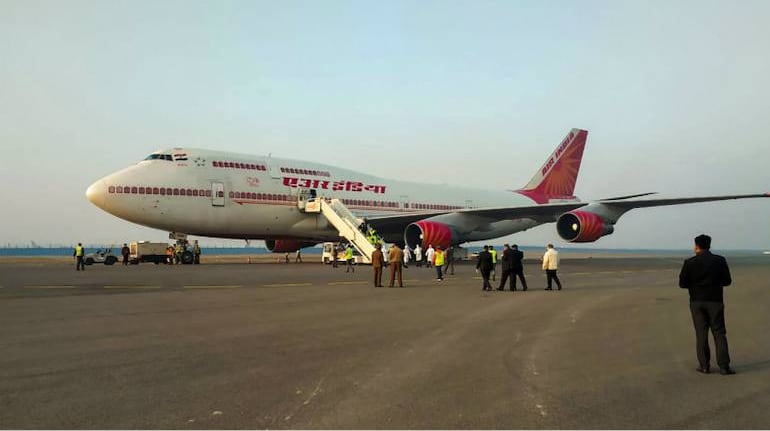



Faced with increasing prospects of an extended lockdown that will restrict flying, airlines in India have reached out to aircraft lessors for a rental holiday.
But the lessors are playing a hard bargain, and haven't yet agreed on the demands. Instead, they have offered airlines a rental deferment.
"The lessors have offered to extend the lease agreement by three to four months so that the airlines can pay back this amount," a senior industry source told Moneycontrol.
Airlines are also in talks with insurers for a refund of a part of the premium to be paid on aircraft insurance. But this depends on several conditions.
The negotiations, both with lessors and insurers, will be important for the carriers to limit costs, and manage cash flow at a time when flights have come to a standstill.
Though airlines now accept bookings for flights from April 15, there is little clarity whether they will be allowed to operate. Many states, including Maharashtra and Odisha, have already extended the lockdown till April 30, and it is expected that if the Centre considers easing restrictions, it will be done only in phases.
Over 650 aircraft have been grounded, across airports in the country, since the lockdown was announced in March.
Lease rentalsGlobally, with nearly 70 percent of the total fleet grounded, all airlines have reached out to their lessors. "Airlines and their strategic partners, including lessors, will have to work together through this unprecedented global pandemic in order to enable a future for the industry," said Manish Raniga, aviation industry expert.
That is important because lease rentals can make up for up to 60 percent of an airline's fixed costs.
In India, IndiGo, the country's largest airline that also has the biggest fleet, paid Rs 5,373 crore in aircraft and engine rentals in the 2019 financial year. SpiceJet paid Rs 1,296 crore.
Much of the negotiation between the two sides though, will depend on the terms of the lease agreement. While none of the agreements said industry executives, has included pandemic as a risk factor, given that airlines have seen disruptions earlier in the form of SARS and 9/11, many now include 'other risks' in a lease document.
These clauses help airlines negotiate for a cut or waiver, in rentals.
In fact, says Nitin Sarin, Managing Partner of Sarin & Co, which specialises in aviation law, few airlines in India have included the force majeure clause in their lease agreements. This means that both, airlines and the lessors, will have to sit across the table and renegotiate the terms. Or, in the worst cases, take the matter to the courts.
"Even if the force majeure clause is included in the agreement, the airline will have to convince the lessor that it has done everything in its means to overcome the situation," said Zulfiquar Memon, Managing Partner, MZM Legal.
Irrespective of what the airlines manage to get from their lessors, COVID-19 will change the way leasing agreements are drawn in the future. "The legal fraternity will have to re-define the risks involved," points out Mark Martin, Founder and CEO of Martin Consulting LLC, an aviation advisory and consulting firm.
Insurance reliefThe carriers will also be banking on some relief from their insurers.
Aviation insurance provides coverage for hull (aircraft) losses as well as liability for passenger injuries, environmental and third-party damage caused by aircraft accidents.
When an aircraft is grounded, airlines can get an insurance cover for physical damage from attacks or acts of theft/vandalism are also offered.
Depending on the size of the cover, the premium range from 0.002 percent to 0.004 percent of the sum assured.
However, insurance executives that Moneycontrol spoke to, said when the plane is grounded the risks are much lower. Hence what the airline companies get is lay-up refund. This depends on the amount of time that they are grounded.
Typically, if an aircraft is laid-up for a period of 30 days or more, a proportion of premium is offered as a refund.
Airlines will look to recover as much cash as possible, especially as they will be unable to utilise much of their fleet because of the travel restrictions. Advisory firm CAPA India has estimated that up to 250 planes could be returned.
"Since aircraft lessors will have limited customers to whom they can remarket returned aircraft, they may be willing to negotiate temporary rental holidays. Although, this may not be applicable for carriers with a high credit risk rating with the prospect for further deterioration," said the firm.
Discover the latest Business News, Sensex, and Nifty updates. Obtain Personal Finance insights, tax queries, and expert opinions on Moneycontrol or download the Moneycontrol App to stay updated!
Find the best of Al News in one place, specially curated for you every weekend.
Stay on top of the latest tech trends and biggest startup news.